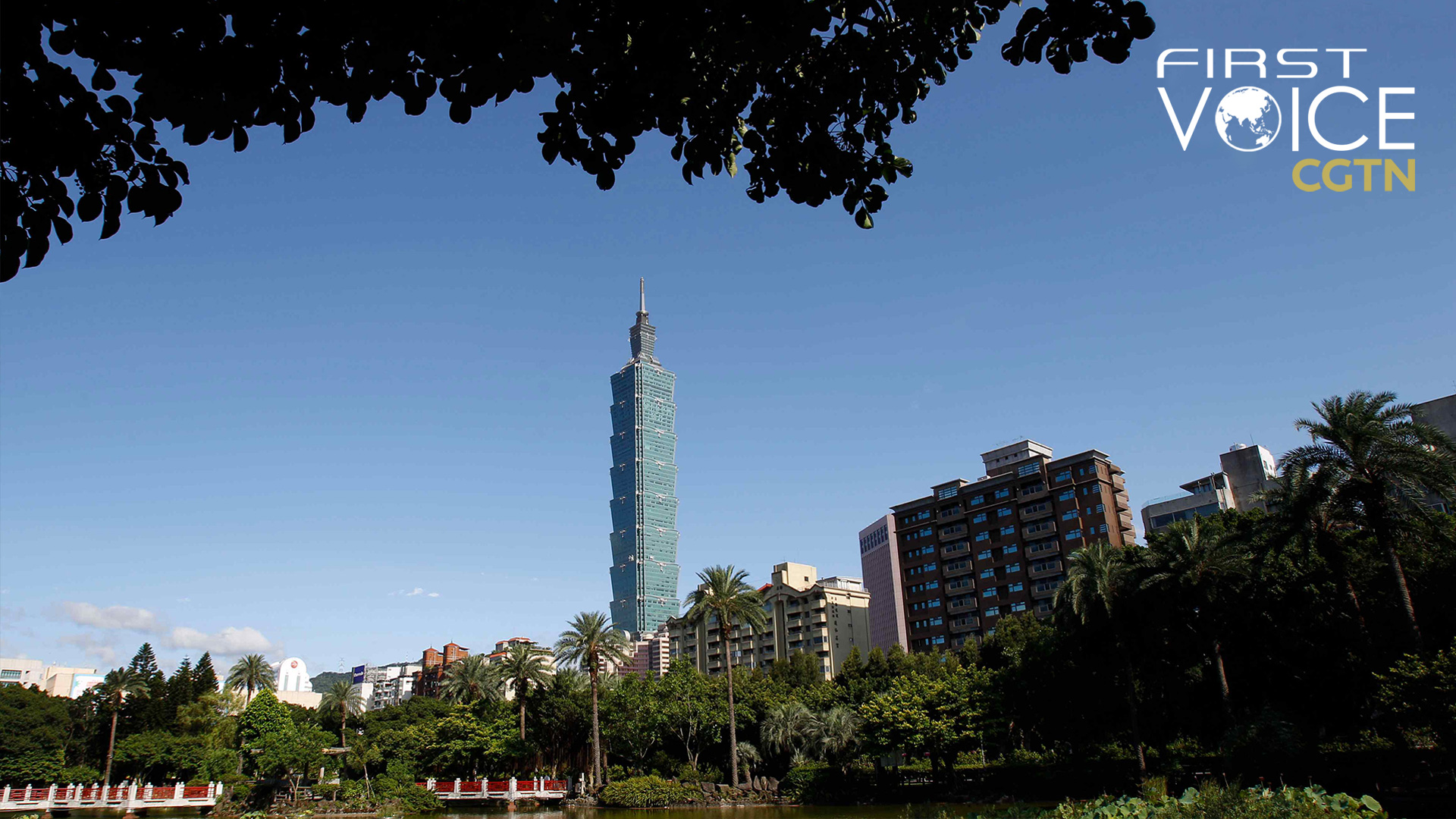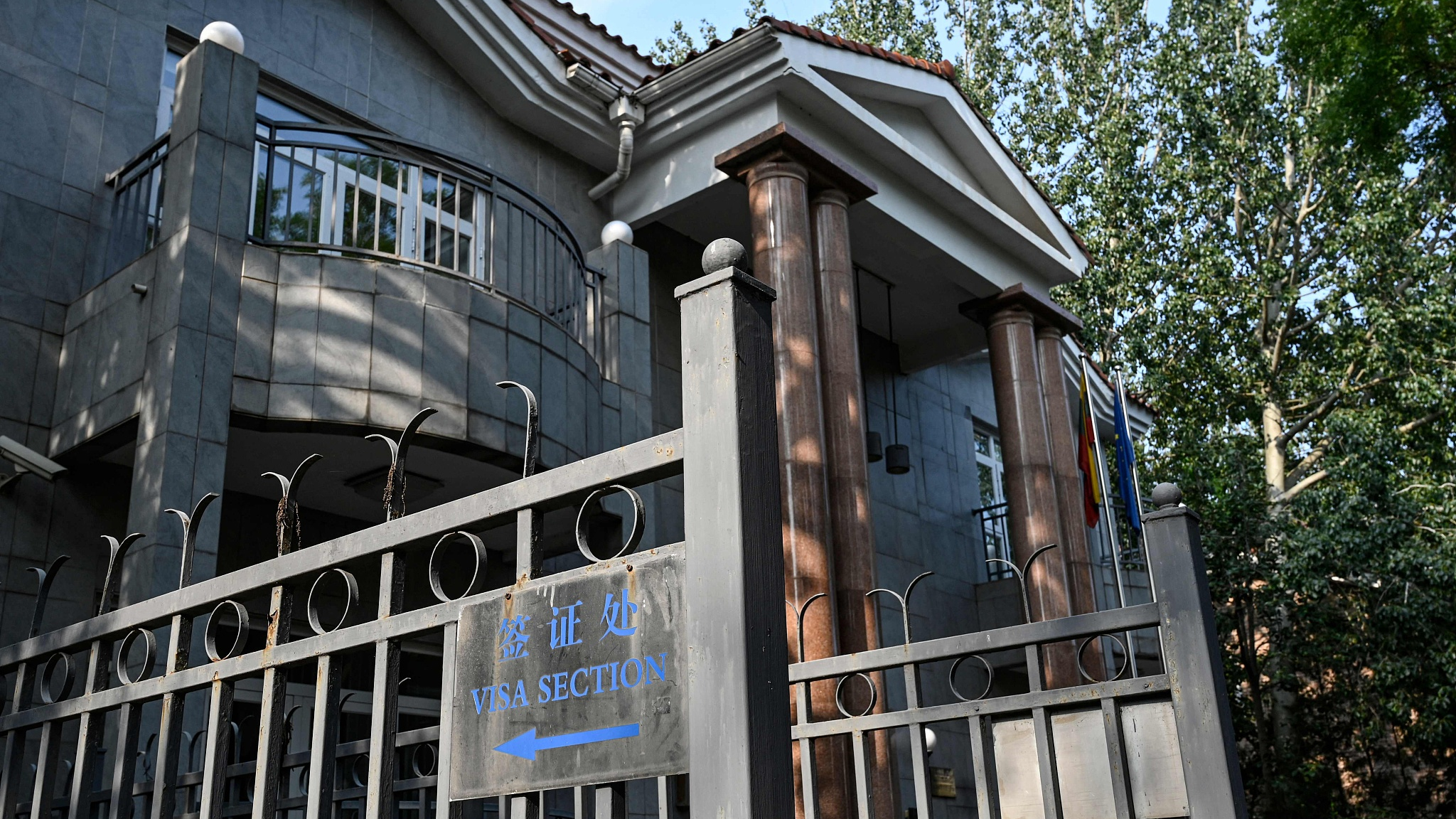
Editor's note: CGTN's First Voice provides instant commentary on breaking stories. The daily column clarifies emerging issues and better defines the news agenda, offering a Chinese perspective on the latest global events.
The Biden administration is seriously considering a request from China's Taiwan to change the name of its representative office in Washington from "Taipei Economic and Cultural Representative Office" to "Taiwan Representative Office," according to the Financial Times report.
Taiwan is a sensitive matter in China-U.S. ties; Washington is clear about it. Knowing well the one-China principle is Beijing's bottom line, American hawks have repeatedly been playing with fire on Taiwan in a gesture to give some so-called deference to their "friends" in the region, just like they did in Afghanistan and Iraq.
Now, it is leaking such information to test the Chinese mainland's response.
Beijing's message to Washington is clear: Abandoning the one-China principle can trigger punitive diplomatic measures and the use of force when necessary.
Hawkish American politicians can look to Lithuania for a hint of how the Chinese mainland will respond at the diplomatic level. After Vilnius allowed the Taiwan authorities to open a "representative office" under the name of "Taiwan," the Chinese government recalled its ambassador to Lithuania and required the Lithuanian side to recall its ambassador to China.
As the world's superpower, Washington's decision to change the name could have significant repercussions. Apart from sending a signal to Taiwan's independence forces, the move may encourage U.S. allies who thought of playing the Taiwan card but dared not anger Beijing to follow suit on the Taiwan question. This means the Chinese side will take more drastic punitive measures against Washington than Vilnius if it decides to go further to challenge China's bottom line.
It is not the first time Washington has made such petty moves regarding Taiwan. Those who play with fire will get burned sooner or later. If no measure is taken that could strike a heavy blow to Washington and deter it from further provocations, the country, at the instigation of anti-China hawks, will repeatedly hype independence in Taiwan, actively show support for its "friends" in the region and attempt petty moves to test the Chinese mainland's response – all in an attempt to bring trouble to China.

The Lithuanian Embassy in Beijing, capital of China, August 10, 2021. /CFP
The Lithuanian Embassy in Beijing, capital of China, August 10, 2021. /CFP
Repeated provocations regarding China's sovereign interests will eventually mean a war over the Taiwan Straits.
China stands ready to strengthen sovereign claims over Taiwan, but is the U.S. prepared for it?
Washington's performances in Afghanistan, Iraq and Syria suggest the answer is no. The U.S. has no core interests in these places. That's why it retreated. The U.S. has no core interests in China's Taiwan, Xinjiang, and Hong Kong either. It will not sacrifice American lives and money for a war over the Taiwan Straits or other Chinese domestic affairs that have no relevance to its security. Even if hawkish American politicians lobby for war, voters, having seen the crusade in Vietnam, Iraq, Syria and Afghanistan, don't want their children to die for another political game.
It's true that President Biden made a "sacred commitment" to Taiwan, as he said in an interview on ABC News in August, but the White House walked back his words immediately, affirming that Washington's Taiwan policy "has not changed."
It's an American tradition to speak loud about its "commitment" to friends and then act on "America First." Adopting a position of "strategic ambiguity" on Taiwan, Washington hopes it can woo and lure its "friends" and "partners" into serving its own political aims and avoid being dragged into a real war.
It is in this broad context that American politicians repeatedly provoke Beijing to test how it would react. That's why the news that White House Asia adviser Kurt Campbell and the National Security Council backed the name change was leaked. The U.S. is happy to test the "low end" of China's bottom line.
Enough is enough.
China stands ready to defend its sovereignty, even at the cost of war. China loves peace and will use every possible means, including force, to ensure long-term peace in the region.
"In the face of … a military balance that is rapidly shifting in Beijing's favor, the United States and Taiwan cannot afford to be prioritizing symbolism over substance," an article published at Council on Foreign Relations reads.
True. Is the U.S. ready for a war? This is the question Washington must answer before it continues provoking China on the Taiwan question.
Scriptwriter: Liu Jianxi
(If you want to contribute and have specific expertise, please contact us at opinions@cgtn.com.)

